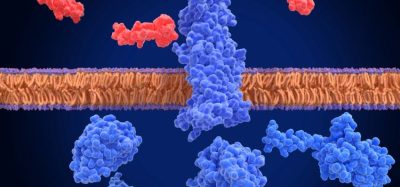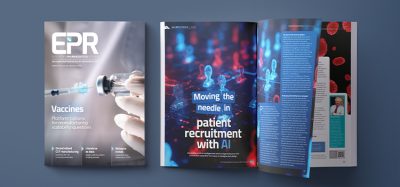Daewoong’s microneedle patch marks semaglutide first in obesity
Posted: 14 August 2025 | Catherine Eckford (European Pharmaceutical Review) | No comments yet
Pharmacokinetic study of the novel drug delivery method shows high relative bioavailability in a once-weekly regimen.


A magnified view (6.7×) of the microneedle patch (credit: Daewoong Therapeutics).
Daewoong Pharmaceutical’s microneedle patch has shown the highest reported bioavailability results to date for the delivery method’s use with obesity drug semaglutide.
The pharmacokinetic study’s findings could begin to pave the way for a single, high-dose formulation of the treatment that could be given on a weekly basis in a needle-free administration.
Key data from the semaglutide pharmacokinetic study
In the pilot human pharmacokinetic study, 70 healthy adults were given a single dose of either a subcutaneous injection or microneedle patch containing semaglutide, which is marketed by Novo Nordisk in obesity as its once-weekly injectable blockbuster drug Wegovy.
Daewoong Pharmaceutical’s patch demonstrated over 80 percent relative bioavailability compared to the injectable formulation.
This is the highest reported results for a microneedle patch with the same active ingredient and outperforms the approximately 30 percent achieved by existing patches.
Daewoong’s patch also provided around 160 times higher bioavailability than semaglutide oral tablets, which the company said are characterised by very low bioavailability and require a complex medication regimen.
Additionally, therapeutic plasma levels were maintained over seven days, highlighting its potential for once-weekly dosing.
Innovating microneedle technology in obesity
The patch was developed using ‘dissolving’ microneedle technology. One of its key benefits comes from its use of pressurised drying and hermetic packaging, which can improve drug uniformity and stability, while also enabling accurate dosing with minimal contamination risk.
Microneedle formats have long promised better adherence, but high-dose delivery has been a challenge. This work is the first to overcome that barrier”
Notably, the microneedle patches were stable at room temperature and therefore do not require cold-chain storage, unlike other semaglutide injectables. This would reduce the product’s distribution costs as well as the waste generated from syringes and needles.
Seong-Soo Park, CEO of Daewoong Pharmaceutical, said: “Microneedle formats have long promised better adherence, but high-dose delivery has been a challenge. This work is the first to overcome that barrier. We plan to expand microneedle technology to a wide range of biologics to lead the global platform market.”
Related topics
Data Analysis, Drug Delivery Systems, Drug Development, Research & Development (R&D), Technology, Therapeutics









